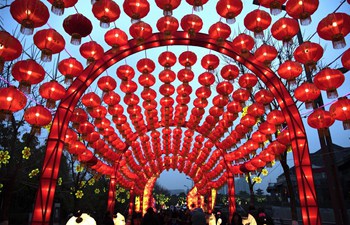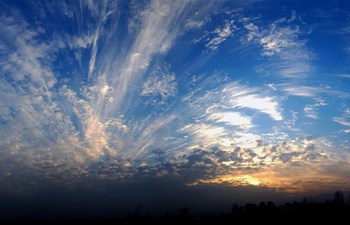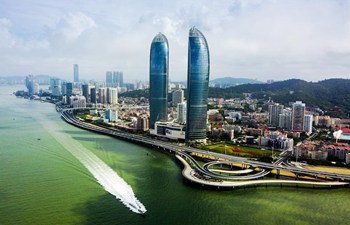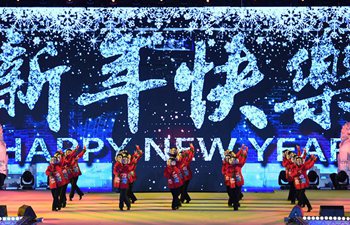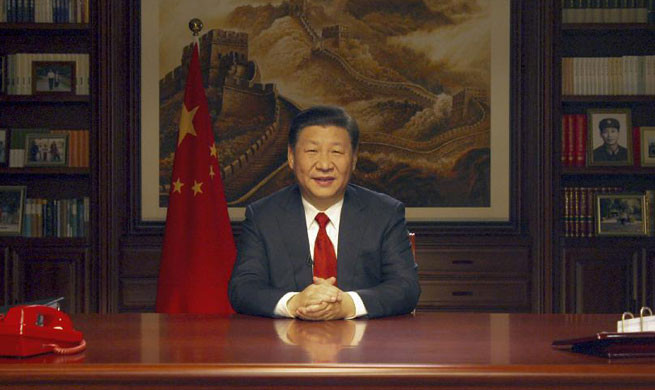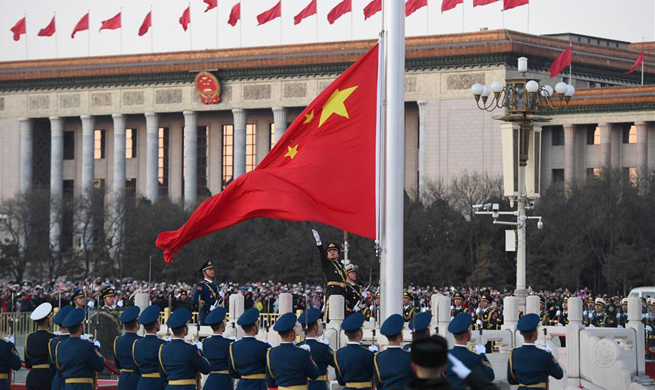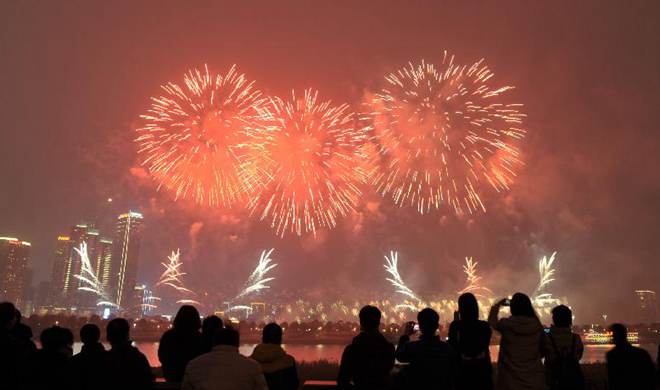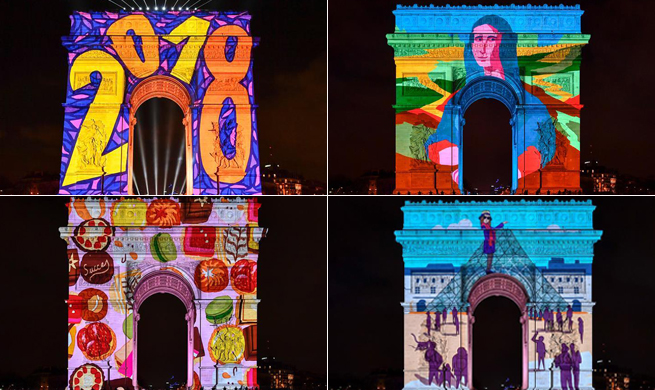BEIJING, Jan. 2 (Xinhua) -- At least eight people were killed as protests against the government's economic policies, including looming price hikes, continued in major cities in Iran over the past days.
At least seven civilians and one security policeman were killed in Iran's ongoing unrest, local media reported on Sunday.
Hamedan Province Deputy Governor Saeed Shahrokhi told Iran's state IRINN TV that three people were killed in the protests in Tuiserkan City in a province in western Iran.
Tasnim news agency reported that a security policeman was killed by the rioters in Najaf Abad city in Isfahan Province in central Iran, while three others were injured.
Mashallah Nemati, governor of Doroud City in the Lorestan Province of Iran, confirmed the death of four people in the recent unrest in the city.
Some of the governmental buildings, banks and religious places have been damaged or set on fire in the violence over the past days, said Nemati.
At least six people were also injured in the unrest, he said, adding that police did not shoot at people, but someone in plain clothes shot at police forces and police stations and wounded some of them.
Protests erupted across Iranian major cities on Thurday or Friday over the government's potential move to raise the prices of some basic commodities, including fuel and bread.
In the capital Tehran, holy cities of Mashhad and Qom as well as Isfahan and Qazvin, people took to the streets to protest the mismanagement of the economy by President Hassan Rouhani's administration.
Provincial officials said the the gatherings were illegal, calling for the police to "deal with them".
In Kermanshah, capital city of Kermanshah Province in western Iran, protestors even clashed with the police. The videos posted on social media show police trying to disperse the crowd by using tear gas and water cannons.
The Iranian government has blocked the popular messaging app, Telegram, used by protestors to coordinate and organize. Also, the speed of internet has been reduced significantly and the websites with the servers outside of the country are almost inaccessible.
Rouhani on Sunday criticized U.S. President Donald Trump for sympathizing with the Iranian anti-government protesters.
"This guy (Trump) who is trying today to sympathize with our people, has forgotten that a few months ago he called the Iranian nation terrorist," Rouhani said. Most Iranian officials have blamed foreign intelligence agencies for stirring up the protests.
The inflation and unemployment rates is the major challenge for Rouhani's economic reforms. According to Iran's Statistical Center, unemployment rate stood at 12.4 percent during the current fiscal year in Iran.
In August, Rouhani won the second term in office by promising to resolve major economic issues, including unemployment, which he squarely blamed on the decades-long Western sanctions.
On Wednesday, Iranian Supreme leader Ali Khamenei called on the government to earnestly tackle the economic problems of the country.
Russian Foreign Ministry said Monday that Moscow hoped that the ongoing mass protests in Iran will not develop into severe violence. He also stressed that any external interference with the situation was unacceptable.
"It is Iran's internal affairs. We hope that the situation would not develop under the scenario of violence and bloodshed," Russian media quoted the ministry's spokesperson as saying.
External interference destabilizing the situation is inadmissible, the spokesman stressed.





